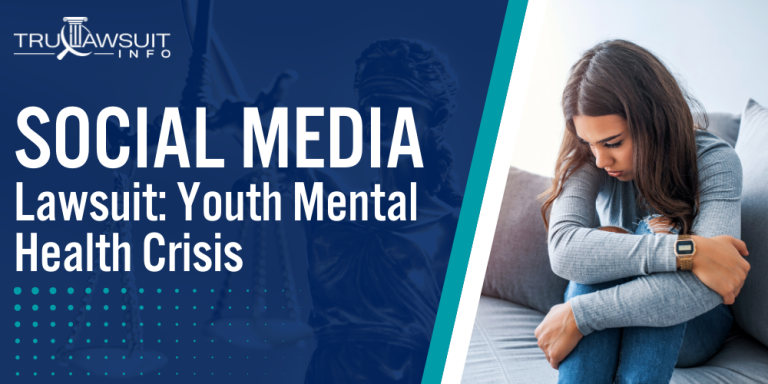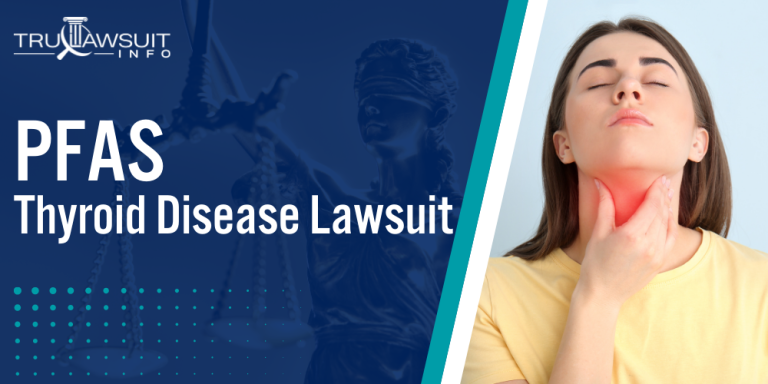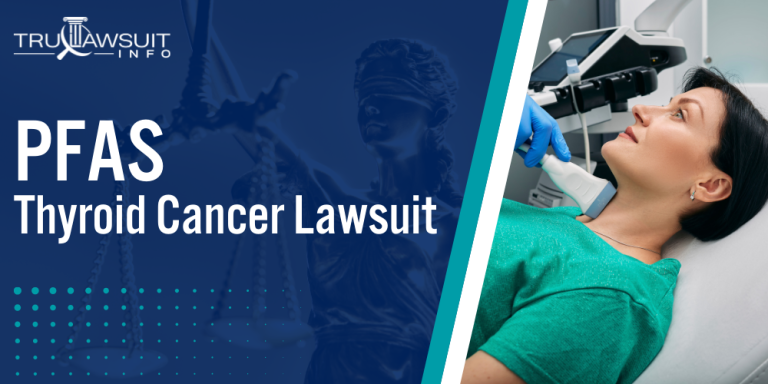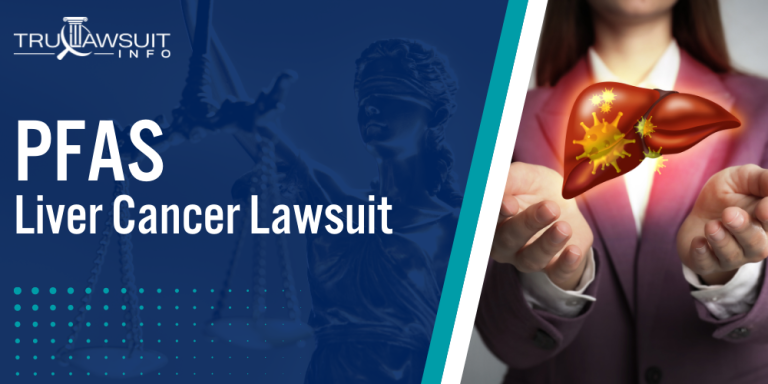Social Media Lawsuit: Youth Mental Health Crisis
Key Takeaways:
- Social media lawsuits address various legal disputes arising from online platforms, including defamation, privacy breaches, monopolistic practices, and the impact on users' mental health.
- Recent legal challenges have pushed for increased transparency and accountability in social media companies' data management, content moderation, and algorithmic practices.
- The outcomes of social media lawsuits can drive significant changes in the industry, shape public perception, and catalyze reforms to protect users, particularly youth, from potential harms associated with these platforms.
Overview of Social Media Lawsuit: Youth Mental Health Crisis
On this page, we’ll discuss the social media lawsuit surrounding youth mental health crisis, impact of social media on teenage girls and body image, school districts’ role in combating the mental health effects of social media, and much more.

Intro to Social Media Lawsuit: Youth Mental Health Crisis
Key aspects of the social media lawsuits include, but are not limited to:
- Addictive Nature of Platforms: Social media lawsuits allege that platforms are designed to be addictive, leading to excessive use and negative mental health consequences.
- Eating Disorders and Body Image: Exposure to edited images and peer comparisons on social media is linked to higher instances of eating disorders and negative body image, particularly among teenage girls.
- Failure to Protect Young Users: Legal actions claim social media companies failed to safeguard young users from known risks, thus exacerbating mental health problems.
- School Districts’ Involvement: Schools are increasingly implementing programs to educate students about responsible social media use and its potential effects on mental well-being.
If you or a loved one has experienced severe mental health issues due to social media use, you may have legal options to hold the platforms accountable.
Contact TruLawsuit Info today using the chat on this page to receive an instant case evaluation.
Table of Contents
The Allegations of a Social Media Lawsuit
The landscape of social media is being shaped by significant legal challenges that question the practices of major industry players.
These lawsuits address concerns about competition and the potential negative impact of social media platform policies on users.
Monopolistic Practices in the Social Media Industry
In recent litigation, social media companies have come under scrutiny for monopolistic practices.
Plaintiffs argue that these corporations maintain dominance by engaging in behavior that hinders competition.
Specifically, they allege that:
- Social media platforms aggressively acquire emerging competitors.
- Social media companies use proprietary algorithms to favor their services.
- Exclusive agreements are put in place to limit the reach of other social media platforms.
- They restrict access to key APIs to prevent other social media companies from competing effectively.
The lawsuits claim that these actions stifle innovation and choice in the marketplace, potentially harming consumers and advertisers who rely on these social media accounts.
Consequences of Antitrust Lawsuits for Social Media Platforms
Antitrust lawsuits can lead to significant outcomes for the defendants.
They may result in:
- Substantial financial penalties can impact the social media platforms’ revenues.
- Social media companies may be required to alter business practices to foster competition.
- Divestitures of previously acquired companies could be mandated to dissolve monopolistic power.
- Implement monitoring measures to ensure compliance with regulations and fair play in the industry.
A shift in these platforms’ operational frameworks can level the playing field and allow for increased innovation and new entrants into the market.
Social Media Lawsuits Surrounding Data Privacy and Security
Social media has grown exponentially, resulting in increasing scrutiny over how user data is handled and protected.
High-profile legal challenges have brought data privacy and security to the forefront.
Social Media Companies’ Handling of User Data
Social media companies face critical analysis for their data management practices.
Frequently, users’ personal information becomes a commodity, where:
- Monetization of personal data without explicit consent has led to an uproar among third-party users.
- Allegations of inadequate data protection measures raise concerns about unauthorized data access.
- Using user data to tailor advertisements has prompted debates over privacy boundaries.
- Ongoing demands for greater transparency in data collection and usage policies.
For instance, the FTC’s settlement with Facebook highlights the intensifying attention to how popular social media platforms manage users’ information.
Legal Implications of Data Breaches and Privacy Violations
When user data is compromised, social media companies often become embroiled in litigation.
Key points include:
- Data breaches can result in significant financial penalties aimed at deterring negligence.
- Legal professionals actively pursue class-action suits on behalf of affected users.
- Attempts to hold social media companies accountable, influencing industry-wide changes.
- Discussions around the adequacy of existing regulations to protect social media users.
The unprecedented $5 billion civil penalty in Facebook’s settlement signifies the potential magnitude of legal repercussions for privacy violations.
The Social Media Lawsuit Cases Involving Content Moderation
In recent years, social media platforms have faced legal challenges as they attempt to regulate content without infringing on free speech rights.
Challenges of Balancing Free Speech and Content Regulation on Social Media
Social media platforms operate at the intersection of technology and free expression, which raises significant questions about their role in content moderation.
They must carefully consider the following points:
- The Principles of Free Speech: while attempting to foster a safe online environment.
- The Communications Decency Act (CDA): particularly Section 230, shields platforms from liability for user-generated content.
- User engagement metrics can be affected positively or negatively by the moderation policies in place.
- Users’ expectations and rights demand freedom of expression and protection from harmful content.
Legal Battles Over Alleged Censorship and Bias in Content Moderation
Lawsuits alleging censorship and bias have increased as users and governmental entities question the neutrality of social media entities.
Key cases include:
- Federal officials allegedly coercing media platforms, raising First Amendment concerns.
- Platforms facing accusations of politically-motivated bias in content moderation decisions.
- Legal arguments surrounding the extent of platform responsibility under the Communications Decency Act.
- Ongoing discussions about whether social media channels have become quasi-public forums, giving rise to new legal interpretations.
The Lawsuits Alleging Discrimination and Bias on Social Media Platforms
Recent legal actions have spotlighted alleged discriminatory practices within social media companies.
These lawsuits zero in on the role of social media algorithms in perpetuating bias and potentially causing harm to users.
Accusations of Algorithmic Bias and Discriminatory Practices
Social media algorithms are often central to discussions about discrimination on digital platforms.
Here is how these allegations typically unfold:
- Algorithms may amplify content that perpetuates stereotypes and fosters social comparison.
- The design and implementation of these algorithms can lead to the marginalization of certain groups.
- Users sporadically report experiencing different treatment or reduced reach of their content based on demographics.
- Lawsuits cite specific instances where algorithmic systems may have failed to treat all users fairly.
Discrimination Lawsuits for Social Media Companies
Discrimination lawsuits aren’t the only legal challenge social media companies face.
They’re also being sued for the negative impacts their algorithms can have on users’ mental health.
The exposure to legal action represents a significant pressure point for social media companies:
- Personal injury lawsuits have been filed, claiming psychological harm due to algorithmically curated content.
- Legal challenges argue that biased algorithms can impact mental health by reinforcing negative social dynamics.
- Some cases detail how young adults are drawn into harmful use patterns on these platforms.
- Companies are accused of not doing enough to address known issues, thus failing to protect their user base.
The Impact of Social Media Lawsuit Outcomes on the Industry
Recent lawsuits against major social media platforms significantly affect industry practices and policy-making.
These legal social media challenges are not just isolated events but catalysts for broader digital change.
How Legal Precedents Set by Social Media Lawsuits Shape Future Policies
Legal precedents established by social media lawsuits provide guidance on how similar cases may be resolved in the future.
They can serve as reference points for:
- Defining Acceptable Online Practices: Determining what is considered responsible behavior for social media companies.
- Setting The Bounds For User Privacy: Outlining how user data can be used or monetized.
- Influencing Product Design: Encouraging platforms to consider the implications of design choices on user well-being.
- Directing Industry Standards: These legal outcomes often initiate dialogues that set new industry standards.
When legal professionals utilize these precedents in their arguments, they reinforce the rulings and elaborate on them, potentially affecting future policies and regulations.
Increased Regulation and Oversight in the Wake of Lawsuits
There has been a noticeable uptick in calls for increased regulation and oversight due to high-profile lawsuits, such as those led by a coalition of attorneys general against social media parent companies.
This scrutiny can lead to:
- More Stringent Regulatory Frameworks: Governments may develop new policies that directly address the findings of these lawsuits.
- Heightened Industry Self-Regulation: Social media companies may proactively alter their operations to avoid legal action.
- Amplified Public Discourse: Entities like the Pew Research Center may see increased interest in their work as society seeks to understand social media’s impact.
- Parent Company Accountability: The litigation may hold parent companies responsible for the actions of their subsidiary platforms.
These changes are essential for protecting user interests and ensuring the industry operates ethically and responsibly.
Each social media harm lawsuit outcome has the potential to reshape the digital environment, setting new precedents for how social media platforms engage with users and handle their data.
The Role of Governments in Social Media Lawsuit Cases
Governments have begun to take a more active role in scrutinizing the operations of social media companies, particularly when these platforms are suspected of harming society or breaching laws.
Government Agencies in Investigating Social Media Companies
Often, government agencies are the first line of inquiry when concerns are raised about social media platforms.
Here are the ways government agencies can investigate social media companies:
- Investigation Authority: They can investigate allegations of harm or illegal activities.
- Data Requests: Agencies can request data from social media companies to analyze their compliance with regulations.
- Collaboration: They might collaborate with other social media giants and tech companies to understand industry practices.
- Regulatory Oversight: Enforcing penalties if there are findings of non-compliance with laws or standards.
Government-Led Lawsuits Against Social Media Giants
There have also been instances where governments have directly initiated legal proceedings against these companies.
Here are some of the reasons why governments may sue social media companies:
- Meta Platforms: Governments have sometimes taken legal action against companies like Meta Platforms for various allegations.
- Consumer Protection: These lawsuits might be related to deceptive practices or a failure to protect consumer data.
- Public Health: Cases may also address public health or safety issues.
- Federal Judges: A California federal judge could preside over lawsuits involving social media companies within their jurisdiction.
The Future of Social Media Lawsuit Trends and Developments
As legal landscapes evolve, social media companies grapple with increasing scrutiny.
This section examines probable trends and specific developments that may shape the future of social media litigation.
Emerging Areas of Legal Concern for Social Media Companies
Tech companies have recently found themselves at the center of major legal disputes due to the misuse of user data, inadequate content moderation policies, and the psychological impacts of their platforms on users.
The discussion draws from cases like the lawsuit filed by Mayor Adams and the allegations in various Multi-District Litigations.
In light of these trends, several emerging areas pose significant legal challenges for social media companies:
- Data Privacy and Security: The increasing number of data breaches and the misuse of personal information continue to put companies at legal risk.
- Mental Health Effects: There’s a growing concern for the impact of social platforms on mental health, especially among youth.
- Consumer Protection Violations: Practices perceived as unethical or deceptive could lead to consumer protection lawsuits.
- Platform Liability: The role of platforms in disseminating information might lead to legal complexities regarding responsibility and speech.
These areas reflect the potential legal hurdles companies may navigate as they strive to innovate while maintaining user trust and complying with evolving regulations.
Continued Legal Challenges in the Social Media Industry
Legal challenges are expected to persist, driven in part by internal Facebook documents released by whistleblowers and the testimonies of former Facebook employees.
They represent the issues faced by the industry and hint at areas that will likely be the focus of future litigation.
Here are some of the key legal challenges confronting the social media industry:
- Algorithm Accountability: Companies may face legal challenges concerning how algorithms influence user behavior and content distribution.
- Content Moderation: The balance between free speech and content control remains a contentious legal issue.
- Antitrust and Competition Laws: Regulations around monopoly power and competitive practices could pose significant legal tests for big tech.
- Employment Practices: The treatment of employees and corporate culture can surface as prominent issues in lawsuits.
The landscape of social media lawsuits is shaped by a blend of technological developments, evolving public expectations, and the ever-changing regulatory environment in which these platforms operate.
Lessons Learned from Social Media Lawsuit Cases
Significant insights have been gained into the need for preventive policies and the importance of accountability in recent social media lawsuit cases.
These takeaways offer guidance for social media entities and legal advisors alike.
Proactive Measures to Avoid Legal Troubles
Strategic planning is key to navigating the social media landscape.
Here’s what entities should incorporate:
- Compliance protocols: Regularly update the terms of service and privacy policies to reflect current laws.
- User education: Inform users about potential risks and the proper use of platforms.
- Content monitoring: Implement advanced tools to detect and manage inappropriate content proactively.
- Feedback systems: Create robust channels for users to report concerns or abuses, facilitating timely responses.
Increased Transparency and Accountability in Social Media Practices
Transparency fosters trust.
Social media companies must ensure that users and regulators understand their practices.
Here’s how:
- Clear Data Usage Policies: Explain how user data is collected, used, and protected clearly.
- Effective Communication: Inform users promptly about changes in policy or data breaches.
- Independent Audits: Regular assessments by third parties can confirm adherence to stated policies.
- Collaboration with Health Experts: Partnerships with behavioral health professionals can help address the psychological impacts of social media.
These lessons are not just for social media sites; they resonate with mass tort lawyers who represent individuals in actions against large companies.
The goal is to create online social networking environments that prioritize users’ well-being while shielding providers from legal consequences.
The Broader Societal Implications of Social Media Lawsuit Outcomes
The outcomes of social media lawsuits carry significant repercussions beyond the courtroom, notably in shaping public perception of technology’s role and the industry’s accountability.
How Social Media Lawsuits Reflect Larger Concerns Over Technology’s Impact
These legal battles mirror increasing worries about the societal influence of social media platforms.
Here are key aspects of technology’s impact highlighted through litigation:
- Legislation and Regulation: Lawsuits often drive lawmakers’ agendas, leading to new regulations to protect users from harm.
- Awareness and Education: The publicity surrounding high-profile cases can raise awareness among parents and children about the risks of social media engagement.
- Industry Standards: With each lawsuit, the technology industry is pressured to self-regulate and potentially adopt higher ethical standards.
- Public Discourse: Social media lawsuits amplify the conversation surrounding the balance between technological innovation and societal well-being.
Social Media Lawsuits to Drive Positive Change in the Industry
The pursuit of legal action is a potent tool for catalyzing reform in social media practices.
Below are ways lawsuits can foster industry change:
- Consumer Protection: Litigation can lead to more stringent policies protecting users from child sexual exploitation and other online threats.
- Transparency: Courts may compel companies to be more transparent about algorithms that exploit human psychology.
- Corporate Responsibility: Lawsuits hold companies accountable for the mental health effects their platforms may have, particularly on youth.
- Health and Well-being: The legal system can push social media firms to prioritize the well-being of their users, potentially leading to safer online environments.
Social Media's Effect on Youth Mental Health
Social media platforms have come under scrutiny for their impact on the mental well-being of young users.
This section explores various dimensions of social media’s influence on youth mental health.
Acknowledging the Youth Mental Health Crisis
The rise in mental health issues among youth has coincided with the ubiquity of social media.
Research indicates a significant uptick in self-harm and suicidal ideation among young people with heavy social media use.
Mass tort lawsuits are seeking to hold companies accountable for these trends.
Examining Social Media Addiction and Its Consequences
Social media adolescent addiction is now often discussed as part of the broader youth mental health crisis.
Characteristics of addiction, such as withdrawal and compulsive use, are increasingly observed in youth, leading to social media addiction lawsuits.
Here are some of the key consequences of social media addiction:
- Addictive nature of the platforms
- Sleep disturbances stemming from excessive social media use
- Relative isolation from face-to-face interactions
- Decrease in academic performance
Analyzing Harm Claims Linked to Social Media Use Among Youth
Social media lawsuits claim platforms contribute to mental health problems among youth.
School districts report increased students’ mental health challenges.
Complaints include platforms creating an addictive environment leading to excessive use and negative consequences.
Addressing the Specific Impact on Teenage Girls and Body Image
Social media has a profound impact on particularly teenage girls and body image issues.
Platforms may perpetuate unrealistic beauty standards, subsequently resulting in higher instances of eating disorders and negative body image.
Here are some of the ways social media can negatively impact teenage girls’ body image:
- Exposure to edited and altered images
- Urge to compare oneself unfavorably to peers
- Direct correlation with eating disorder symptoms
- Development of body dissatisfaction
The Role of School Districts in Combating the Mental Health Effects of Social Media
School districts are increasingly involved in supporting their students’ mental health in the wake of negative social media exposure.
Schools implement programs to educate students on the responsible use of social media and its potential effects.
The Growth of Social Media Lawsuits Claiming Mental Health Damages
An increasing number of legal actions reference the contribution of social media to the mental health crisis.
These social media harm lawsuits allege that platforms failed to protect young users from known risks, thus exacerbating mental health problems.
These legal actions center around the following claims against social media platforms:
- Lawsuits alleging failure to protect children
- Proliferation of mental health issues tied to social media use
- Legal claims of platforms’ algorithms promoting addictive use
- Rising public discourse on platform responsibility
Exploration across these subsections elucidates the complex relationships between social media usage and youth mental health, highlighting the pressing need for accountability and informed approaches to mitigate these issues.
Frequently Asked Questions
-
What legal actions can be taken if social media usage leads to mental health issues?
Individuals may seek to file a social media addiction lawsuit if they can demonstrate that social media usage directly causes anxiety and other mental health issues.
In such a case, evidence of negligence on the part of the social media company would need to be established.
-
What are the grounds for receiving compensation in social media-related lawsuits?
Compensation in social media lawsuits typically hinges on proving that the platform’s actions caused measurable harm.
Loss of income, medical costs, and pain and suffering are some of the damages for which victims might receive compensation.
-
How do law firms like Morgan and Morgan approach social media harm cases?
Organizations like Morgan and Morgan tend to approach these cases by thoroughly investigating the alleged harm caused by social media.
They also accumulate substantial evidence to support claims of negligence or breach of duty by the social media company.
-
What legal precedents exist for social media harm or addiction claims?
Legal precedents for social media harm or addiction are relatively new; however, some cases, such as Elonis v. U.S., have begun to establish a framework for evaluating threats and harm in the context of social media.
-
Under what circumstances can an individual sue for defamation or harassment on social media?
An individual can sue for defamation if they can prove that a false statement about them on social media caused them reputational damage.
For harassment, the behavior must be persistent and targeted, causing distress or alarm.
-
What are the key legal arguments used in suits against social media companies for psychological harm?
Key legal arguments include the company’s failure to warn users about potential harm, negligent design of the platform that may contribute to addiction or harm, and violation of consumer protection laws due to misleading practices.

Experienced Attorney & Legal SaaS CEO
With over 25 years of legal experience, Jessie is an Illinois lawyer, a CPA, and a mother of three. She spent the first decade of her career working as an international tax attorney at Deloitte.
In 2009, Jessie co-founded her own law firm with her husband – which has scaled to over 30 employees since its conception.
In 2016, Jessie founded TruLaw, which allows her to collaborate with attorneys and legal experts across the United States on a daily basis. This hypervaluable network of experts is what enables her to share reliable legal information with her readers!
Have A Case?
Here, at Tru Lawsuit Info, we’re committed to helping victims get the justice they deserve.
To do this, we actively work to connect them with attorneys who are experts in litigating cases similar to theirs.
Would you like our help?
Tru Lawsuit Info is a reliable source of information about issues that may affect your health and safety, such as faulty products, data breaches, and environmental hazards.
Our team of experienced writers collaborates with medical professionals, lawyers, and advocates to produce informative articles, guides, and other resources that raise awareness of these topics.
Our thorough research provides consumers with access to reliable information and updates on lawsuits happening around the country. We also can connect consumers with attorneys if they need assistance.
Camp Lejeune's water contamination issue spanned several decades starting in the 1950s. Exposure to these chemicals has been linked to various serious health issues, including cancer, organ diseases, and death.
Research is increasingly suggesting a link between the use of Tylenol during pregnancy and the development of neurodevelopmental disorders, such as autism and ADHD, in infants.
Legal action is being taken against manufacturers of Aqueous Film-Forming Foam (AFFF), a chemical used in fighting fires. The plaintiffs allege that exposure to the foam caused health issues such as cancer, organ damage, and birth and fertility issues.
Have A Case?
Here, at Tru Lawsuit Info, we’re committed to helping victims get the justice they deserve.
To do this, we actively work to connect them with attorneys who are experts in litigating cases similar to theirs.
Would you like our help?







